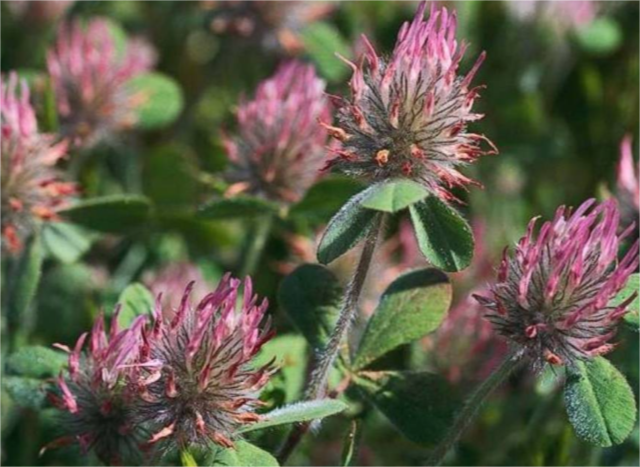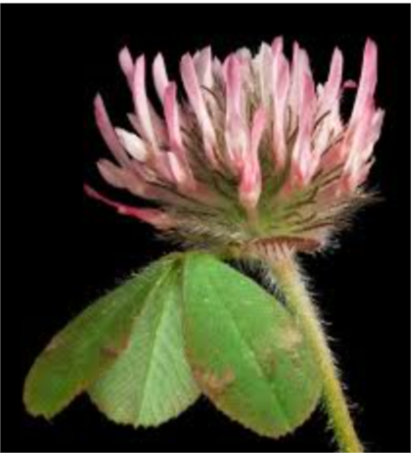Rose Clover Plant
Rose Clover (Trifolium hirtum) grows up to 2 ft, thrives in well-drained soil, full sun, moderate moisture, and is edible but not medicinal.

Habit
Herb
Height
30-60 cm
Growth
Fast
Soil
Well Drained, loamy
Shade
Full
Moisture
Moderate
Edible
Yes
Medicinal
Yes
Origin
Mediterranean
Climatic Condition
Temperate, Arid
Temperature (°)
10-25°C
Humidity (%)
40-70%
Potting media
Field soil
Fertilizers
Nitrogen-fixing
Watering
Low
Plant Weight
1-3 kg
Flowering Time
Spring to Summer
Soil Ph level
6.0 - 7.5
Water Ph level
6.0 - 7.5
Soil EC
1-2 dS/m
Yield Per Plant
Forage crop
NPK ratio
05:10:20
life Span
Annual
Health Benefits
Soil improvement, forage
Suggested Grow Media or Potting Mix ?
50% peat moss, 25% compost, 25% sand
Suggested Fertigation/Fertilizers
Fertilize every 6 weeks with nitrogen-rich fertilizer.
Common Diseases and Remedies
Leaf Spot, Rust, Downy Mildew, Aphid Infestation, Root Rot
Brown or black lesions on leaves, Reddish or orange pustules on leaves, White powdery growth on leaves, Distorted leaves and sticky residue, Wilting and stunted growth
Neem oil, Compost tea, sulfur spray, Improve air circulation, insecticidal soap, Improve soil drainage.
Copper-based fungicides, Fungicides with propiconazole ,Sulfur-based fungicides, Chemical insecticides, Soil-applied fungicides
HEALTH BENEFITS
· Contains antioxidants and is sometimes used in herbal teas for inflammation relief.
· Red clover has been used to treat a variety of health issues, including hot flashes, osteoporosis, arthritis, and skin and hair disorders.
· Red clover contains isoflavones, which have estrogen-like effects in the body.
· Some research suggests that taking 40–80 mg of red clover daily may help reduce severe menopausal hot flashes.
Red clover extract has soothing, calming, and skin-softening properties.

